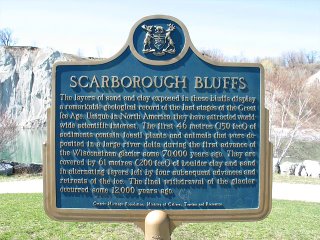2 very interesting pieces on the evolvement of english in Pakistan.
* Affectee: in desi English this means 'someone affected', but it is not to be found in the dictionary (English dictionary, that is).
* Flying coach: local coinage meaning 'very fast coach'.
* Hotel: it refers to an eatery as well as to any place meant for boarding and lodging.
* Broad-minded: in standard English, it refers to behaviour regarding sex, but in 'Pinglish' it means 'somebody who is willing to accept different norms and is adaptable'.
* Cheater: used in colloquial Urdu (and local 'English', too) instead of 'cheat'.
* Driver: the use of 'driver' instead of chauffeur is fairly common.
* Bearer: a waiter.
* Boot: a shoe.
* Cent percent: used instead of 'a hundred per cent' ('per' and 'cent' are put together).
* Conveyance: transportation
* Moot: used by some local newspapers instead of 'meeting'.
* Nook and corner: instead of 'nook and cranny'.
* Opticals: used in place of 'eye glasses'.
* Tubelight: fluorescent tube.
* Thrice: not considered obsolete and is still used to say 'three times'.
* Nullah: ravine; usually buses fall into 'nullahs' and 'khuds'.
* Urad: lentil.
* Moong: ditto; read market intelligence published in local English newspaper to find (more) such words.
* Dacoit: a robber, perhaps from Urdu dakait.
* Cutpiece: a small, leftover piece of cloth; a local coinage.
* Jack: influence.* Source: ditto.
* Eveninger: an evening newspaper.
* On seat: instead of 'in seat', implying 'not in the office', perhaps a literal translation of Urdu's seat pur nahin hay.
* Diggy: the trunk of a car.
* Mudguard: the fender of a car or motorbike.
* Gherao: In 'Engdu', it means 'a sort of demonstration where protesters surround some person or building. Some newspapers use its 'past tense' even, that is, interestingly, 'gheraoed'.
* Black money: refers to money amassed through unfair means; another local usage, perhaps a literal translation of kala dhan.
* Colony: forget colonialism and imperialism; in 'Pinglish' this refers to a large area comprising of residential blocks, for instance: Jinnah Colony, People's Colony, Shah Faisal Colony, etc.
* Goonda: hooligan.
* Airdash: officials never travel by air nor do they rush to a place, they always 'airdash'; and they don't care if this word exists in the English dictionary or not.
* Ticket: also used to say 'stamp'.
* Healthy: means 'fat' (not a healthy idea, of course).
* Toast: a slice of bread whether toasted or not.
* Lathi-charge: in 'Urdish', this refers to the use of batons by police, usually to disperse a disorderly crowd. Lathi is, of course, a desi word meaning 'a heavy stick' and the 'charge' is English. The past tense is 'lathi-charged'.
* Kutcha: made of mud or clay, for example, a kutcha road, a kutcha house. Antonym is pucca.
* Demise: death; (not considered formal or pompous).
* Felicitate: to congratulate; (ditto).
* Peon: the dictionary says peon means a day-labourer; in India it meant a foot-soldier. But now, in Pakistan and India, it means 'a messenger or office boy'.
* Allottee: a person allotted something, specially property.
* Lakh/lac: a hundred thousand. in tanzania peti lol 
* Crore: a hundred lakh; ten million.
* Godown: a warehouse.
* Eve-teasing: sexual harassment.
* Double-roti: bun or bread; and don't mind if it is 'single'.
* Miscreant: in 'Pinglish', not considered dated.
* Challan: ticket for a traffic offence.
Idioms
* Keep fast: instead of 'fast'; literal translation from Urdu.
* Give exam: instead of 'take exam'; ditto.
* Ten, ten times: literal translation of dus dus baar.
* New, new things: literal translation from Urdu involving repetition of adjectives, such as 'big, big cars'.
Grammar
* There is a general tendency towards using the Present Progressive instead of the Present Simple: 'I am not knowing' instead of 'I don't know'; 'I am thinking' instead of 'I think' and 'We should not be doing this' instead of 'we should not do this'.
* Another trend or deviation is to use the Present Progressive instead of the Present Perfect Progressive: 'I am waiting since morning', instead of 'I have been...'
Other deviations:
* 'I think so that...' instead of 'I think...'.
* 'What is your good name'? this may sound strange to the native ears since this is literal translation of Ism-i-sharif in Urdu.
* Similarly 'How is your good self?' has a ring of Urdu. Perhaps mizaj sharif translated."





